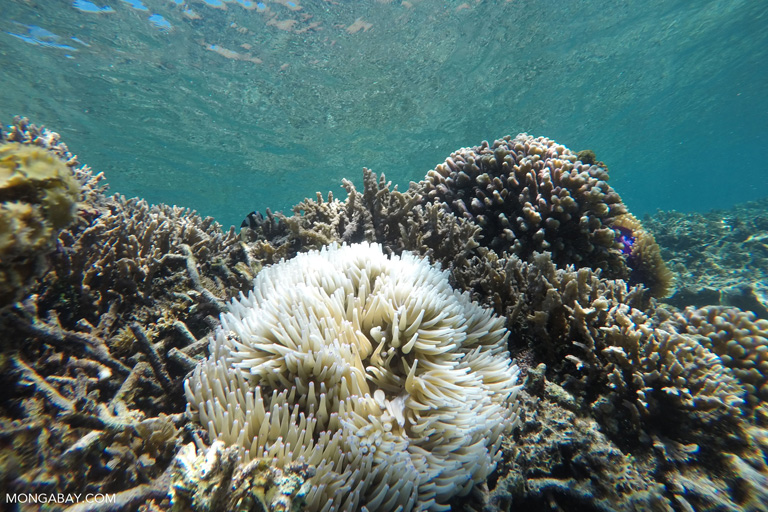It’s 2019, and science leaves little doubt that the world’s oceans are changing, fast. Temperatures and high-tide lines are rising. PH and sea ice are declining. Some species are moving into new geographies; others are succumbing to overfishing and other pressures.
At the same time, humanity’s interaction with the sea is changing, too. New maritime industries are taking root. Old industries are moving into new geographies. People are hardening some shores and building them out into the sea, even as other coastlines sink below the water’s surface. Novel systems for governing and monitoring what people can and cannot do at sea are emerging, enabled by a proliferation of developing technologies. Fishing gear and practices are changing to target new stocks and to avoid unintended bycatch.
With this reporting initiative, Mongabay will explore innovative practices, policies, and technologies in marine conservation and the fisheries industry. We will cover a wide variety of story lines around the globe, while prioritizing those that focus on efforts to reduce illegal, unregulated and unreported (IUU) fishing in overfished regions, and on developments in China, Indonesia, India, West Africa, and the South Pacific.

We welcome proposals from experienced journalists for reported stories. Opinion pieces will not be considered. Each story will be approximately 800 to 2,000 words in length and will include quotes from at least 3 or 4 original interviews. Authors will be expected to provide 5-10 publishable photos to accompany their articles, along with captions and photo credits. We will also consider proposals for fully edited and produced videos of up to 10 minutes in length.
Completed stories will be published in English on Mongabay.com under an open Creative Commons license that allows for sharing and re-posting. They could potentially be translated into another language and published by Mongabay.
Mongabay will negotiate all fees and contracts on a per-story basis. Completed stories will be paid per word, depending on the journalist’s experience and the complexity of the reporting. We offer a bonus of $100-$300 for high-quality b-roll footage we can cut into a short video to promote the story on social media. We also offer a small bonus of $25 to journalists who proactively get their stories republished in major third-party print media outlets and on websites that draw more than 100,000 unique visitors per month.
Pitches are no longer being accepted for this special reporting project.